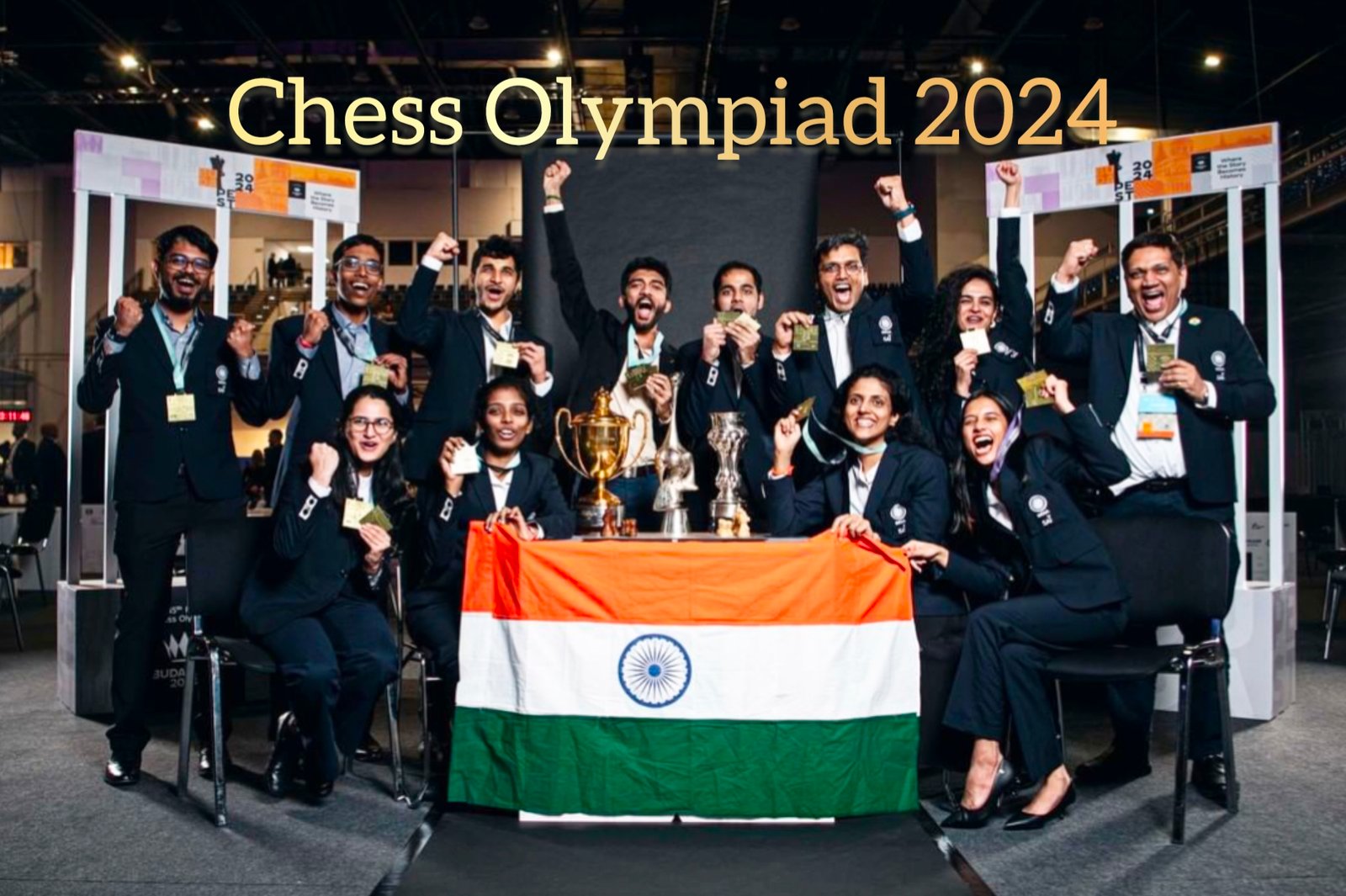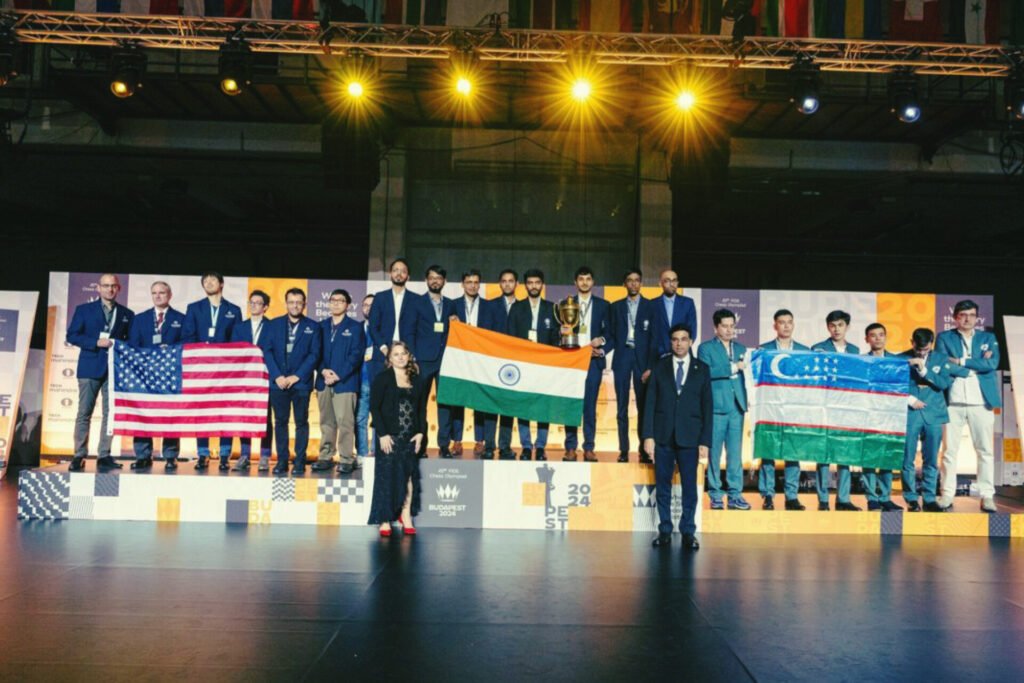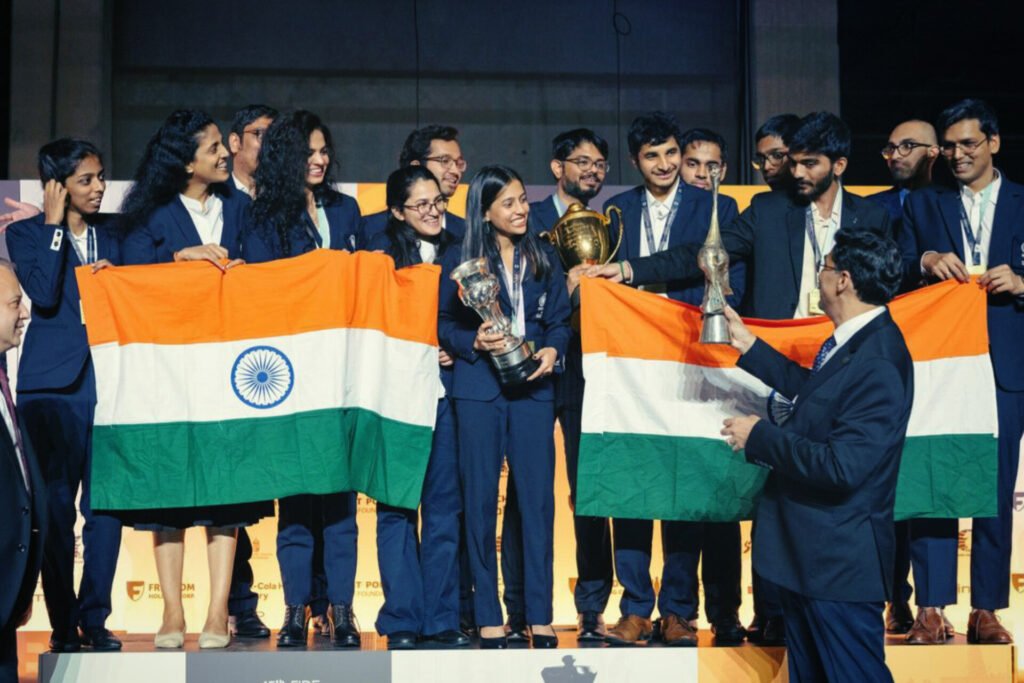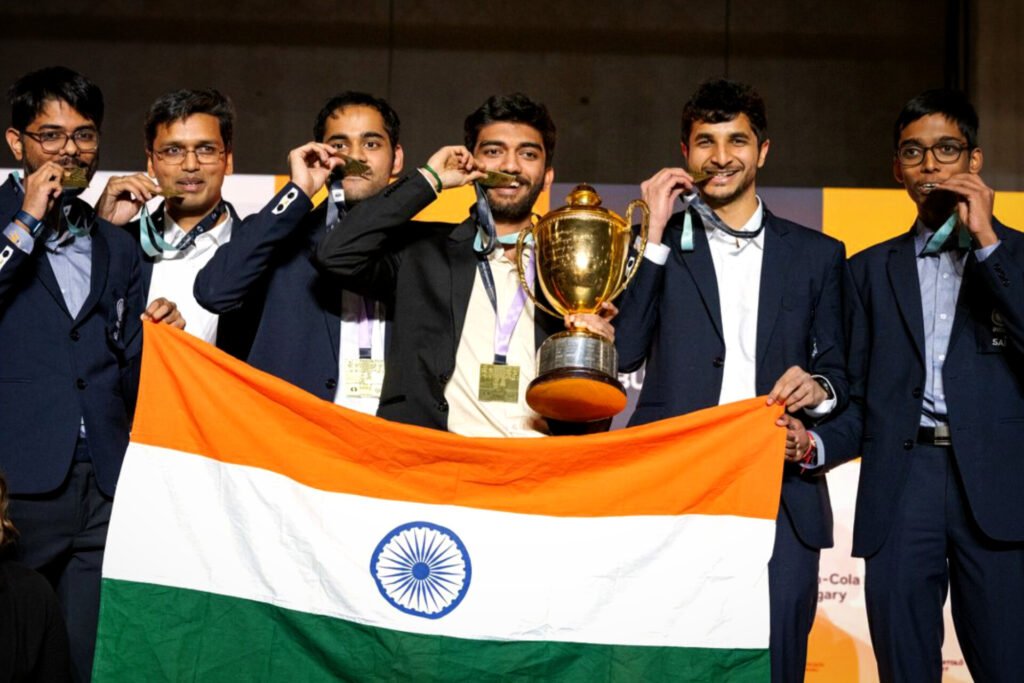
Explores key takeaways from the Chess Olympiad
Gukesh’s stellar performance on the top board was undoubtedly the standout story of the Olympiad. He became a magnet for selfies, with players from other nations admiring his prowess during the closing ceremony.
Scoring 9/11 may be achievable at a club-level tournament or even in a Closed IM event, but doing so at the Olympiad on the top board is an entirely different feat. It’s no wonder that Gukesh’s Elo rating performance of 3056 was eclipsed only once in chess history—by Fabiano Caruana’s 3098 at the Sinquefield Cup a decade ago. Even Vladimir Kramnik’s remarkable Olympiad debut in 1992, where he scored 8.5/9, was achieved on the reserve board.

The World Championship challenger is now free of past regrets. At a press conference, Gukesh remarked, “This team gold is special for me because we came so close last time. I had a personal debt to repay. It could be said that we missed the team gold due to my mistake, but now I believe I’ve shown that it was just an accident and that I’m capable of much more.”
In 2022, Gukesh had pressed for a win in the penultimate round against Uzbekistan’s Nodirbek Abdusattorov but ended up losing when a draw would have kept India in contention. His loss cost India a crucial match point. Now, with two Olympiad golds to his name, Gukesh appears sharp and ready for the upcoming World Championship match against Ding Liren in Singapore, starting on November 25.
Honesty at its finest
When asked at a FIDE conference which achievement he values more—the Candidates victory that earned him a shot at the World Championship, the Olympiad individual gold on the top board, or the team gold—Gukesh chose the Candidates win. It’s no surprise, as chess remains primarily an individual pursuit.
Meanwhile, Divya Deshmukh’s impressive performance on the women’s third board secured her position as the world’s No. 1 junior girl (U-20) with a live rating surpassing 2500. However, Divya values the team gold more, stating, “Rating can always be improved!” Former seven-time National Champion Praveen Thipsay added, “Divya’s goal should be to become the women’s world champion within two years.”
The New India
When competing for team gold, individual medals take a back seat—a shift in mindset that reflects the changing times. The Indian players embodied this spirit. In contrast, at the 1990 Novi Sad Olympiad, Dibyendu Barua, then a contender for a board medal on the second board, was rested for two of the final three rounds to protect his chances for an individual prize. This time, however, Barua returned as coach of the men’s team, witnessing how the focus has evolved toward collective success.

Busting the Swiss League myth
Men’s team captain Srinath highlighted that India’s 3.5-0.5 victory over Serbia in the fourth round was a sign the team was on track for something special. This performance underscored that the perceived randomness of the Swiss League format—whether in pairings or the timing of setbacks—was no obstacle.
When you consistently win matches, you no longer have to worry about whether the final standings reflect your true performance.
The Shades of Dominance
When China won Olympiad gold in 2014, they lost only one game, just like India. However, they managed 20 game wins, while India scored an impressive 27 wins in 44 games. Despite this, India’s performance might not be considered the most flawless in Olympiad history. The 1968 and 1974 USSR teams claimed gold without losing a single game, playing 74 and 88 games respectively. As Anand told Revsportz, “Back then, the gap between the Soviets and other teams was much wider. But here, the Indian players have outperformed opponents in their own rating bracket with comparable strength.”
The Influential Shades
Judit Polgar noted the body language of the young Indian men’s team, stating, “It was evident in India in 2022 that the new generation of players was poised to take over,” during her interview with the Chessbase India stream. “They were strong contenders for the gold medal. The way the Indian boys positioned themselves at their boards suggested that expectations inspired them more than pressured them.”

Carlsen again ignores
World No. 1 Magnus Carlsen skipped the 11th and final round, along with the prize distribution ceremony, at the previous Olympiad in Mamallapuram two years ago, and he repeated this action in Budapest on Sunday. Finishing 14th after being seeded sixth must be a significant disappointment for someone of Carlsen’s caliber. However, the 33-year-old still secured the bronze medal on the top board, earning six points in eight games with an impressive rating performance of 2810. FIDE shared a podium photo that notably omitted the vacant bronze medal spot. Carlsen’s wish to keep Russia and Belarus banned from team events in chess was respected, as a proposal from Kyrgyzstan to lift the ban during the FIDE congress was rejected.
Make it matter
D. Harika was pregnant during her participation in the last Olympiad. Balancing the roles of both mother and player is undoubtedly more challenging, but she noted that this dual responsibility serves as motivation as well. “If you’ve left your baby back in India, you’d better make it count.”


 Previous Post
Previous Post Next Post
Next Post


